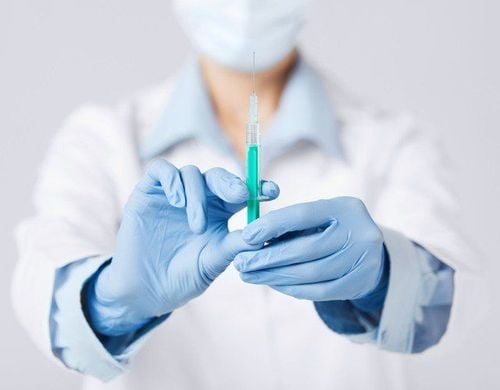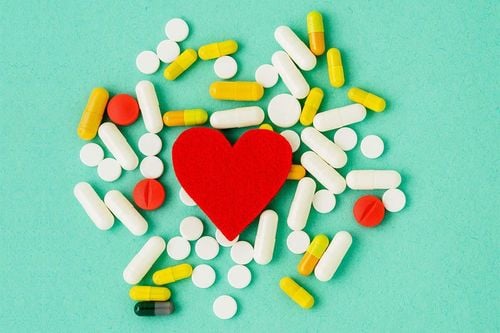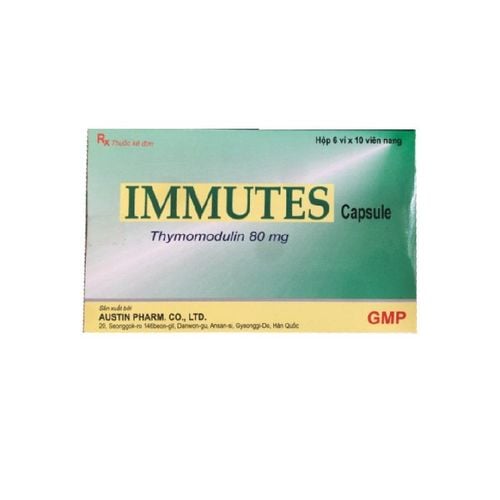This is an automatically translated article.
Peanuts are classified as a serious allergen with potentially life-threatening symptoms such as anaphylaxis. Currently, peanut allergy is developing rapidly among children. So are products made from peanuts like peanut butter likely to cause allergies for users?
1. The prevalence of peanut butter allergies
Food allergies currently affect about 4% of adults and 8% of children in the United States. Serious food-related allergic reactions are also on the rise. FARE also notes that the number of children hospitalized with food allergies tripled from the late 1990s to the mid-2000s. One type of food allergy is of particular interest to peanut butter allergy.
Peanut allergies including peanut butter allergy have increased 21% among children in the United States since 2010. Nearly 2.5% of American children may be allergic to peanuts, according to the American College of Allergy, Asthma Asthma & Immunology (ACAAI).
2. Symptoms of peanut butter allergy
Symptoms of peanut as well as peanut butter allergy can range from mild skin rash and upset stomach to severe anaphylaxis or cardiac arrest. Other symptoms that may be related to breathing include: sneezing, stuffy or runny nose, itchy or watery eyes, swelling, and stomach cramps. diarrhea, dizziness or fainting, nausea or vomiting.
3. What causes peanut butter allergy?
Genetic factors can play a big role in the development of peanut butter allergy. A 2015 study of food allergies found that 20% of participants with a peanut allergy had certain genes.
Children are exposed to peanuts at an early age leading to an increase in allergic reactions. Other factors associated with an increase in peanut-related food allergic reactions include increased environmental exposure. You should also adopt a vegetarian diet and replace meat with peanuts and tree nuts as a source of protein. Food preparation methods during processing can cause cross-contamination or cross-contact.
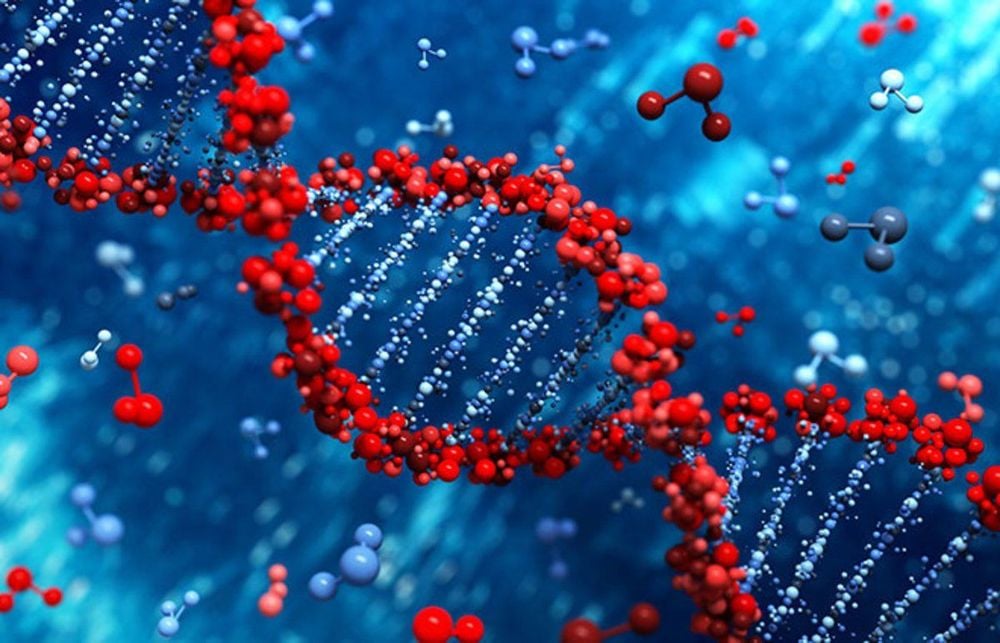
Yếu tố di truyền có thể liên quan đến tình trạng dị ứng bơ đậu phộng
4. Complications related to peanut butter allergy
Deaths from food allergies are extremely rare. Of all food allergies, peanut allergy is the most common, and people with peanut allergies have a higher risk of developing anaphylaxis. Anaphylaxis, a severe allergic reaction that can cause a number of symptoms, including: gastrointestinal pain, swelling of the face in: lips, tongue or throat, breathing problems, such as: such as difficulty breathing and wheezing
In the most severe cases, coronary artery spasm can lead to heart attacks.
5. Diagnosing a peanut butter allergy
You can have tests that include: A blood test or trying a food by mouth. During an oral food test, you'll eat small portions of the suspected allergen while your doctor waits to see how you react. Allergic reaction tests can be done by an allergist.
6. Peanut butter allergy treatment
Allergic food reactions which include peanut butter allergy have a serious condition that requires immediate medical treatment. People at risk of anaphylaxis should also carry an epinephrine auto-injector with them in case of an emergency.
For mild reactions, using an over-the-counter antihistamine may help relieve symptoms, such as an itchy mouth or a rash. However, using an OTC antihistamine will not relieve respiratory or gastrointestinal symptoms.
7. How to help prevent peanut butter allergy
The National Institute of Allergy and Infectious Diseases (NIAID) has advised women not to eliminate peanuts from their diet during pregnancy and lactation. Because there is no association between the mother's diet and the child's likelihood of developing a peanut allergy.
The UK Department of Health makes a similar recommendation, however, it also advises parents not to give peanuts to babies for the first six months of life.
Children with a history of peanut allergy should be introduced to this food only after consulting a pediatrician. The American Academy of Pediatrics (AAP) has guidelines recommending that children at high risk for peanut allergy be introduced to the food early. Foods containing peanut butter should be added to a child's diet at 4–6 months.
8. Subjects prone to peanut butter allergy
Peanuts are a common cause of severe allergic reactions. If you are allergic to peanuts and peanut products such as peanut butter, a small amount can cause a large reaction. Even just touching a peanut can cause a reaction in some people.
Children are more likely to have peanut and peanut butter allergies than adults. While some develop a peanut butter allergy that may cause others to need to avoid peanuts for life.
You are at increased risk of developing food allergies, including peanuts and peanut butter, if you have been diagnosed with another allergic condition. A history of food or common allergies also increases your risk of developing a peanut allergy.
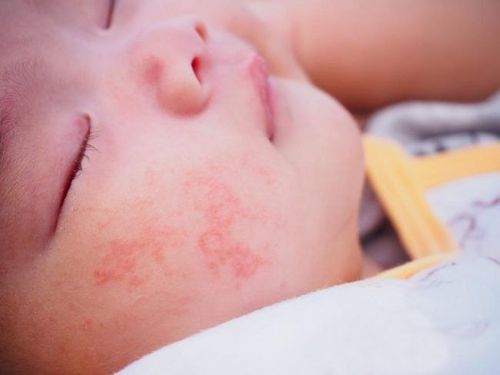
Trẻ em dễ bị dị ứng bơ đậu phộng hơn người lớn
9. Mild signs and symptoms
Allergic reactions will in most cases become apparent within minutes of exposure to peanuts. Some signs and symptoms can be subtle. For example, you may develop one or more of the following: itchy skin, rash, which may appear as small spots or large blisters on your skin, an itchy or tingling sensation in or around your mouth or neck throat, runny or stuffy nose, nausea
In some cases, these mild symptoms are seen as the start of a reaction. Signs can become more severe, especially if you don't take steps to treat it early.
10. More noticeable allergy signs and symptoms
Some symptoms of an allergic reaction are more noticeable and uncomfortable, including: swelling of the lips or tongue, swelling of the face or hands and feet, difficulty breathing, wheezing, stomach cramps, nausea, vomiting, illness diarrhea .
10.1 Life-threatening reactions Some serious and life-threatening allergic reactions - anaphylaxis. You may have the following symptoms: sore throat; shortness of breath; drop in blood pressure , dizziness , loss of consciousness
If you experience symptoms of an allergic reaction in two or more such as both the respiratory and digestive systems or other symptoms, seek emergency medical care because may have a life-threatening reaction.
To treat a serious peanut food allergic reaction, you need an injection of epinephrine. If you are diagnosed with a peanut allergy, your doctor will instruct you to carry an epinephrine auto-injector. After injecting epinephrine, you still need urgent medical help to manage the condition.
If you have never been diagnosed with an allergy and suspect that you have had an allergic reaction, make an appointment with your doctor. They can help determine what is causing your symptoms. You can then learn how to prevent and treat future food allergic reactions.
General health check-up package - Vinmec International General Hospital is currently being deployed for all customers. With this package, customers will be examined overall health status through tests: blood, urine, liver, kidney... from which the doctor will have specific assessment and advice for the patient. on treatment direction as well as complete diet to ensure the best current health.
Please dial HOTLINE for more information or register for an appointment HERE. Download MyVinmec app to make appointments faster and to manage your bookings easily.
Reference source: healthline.com



